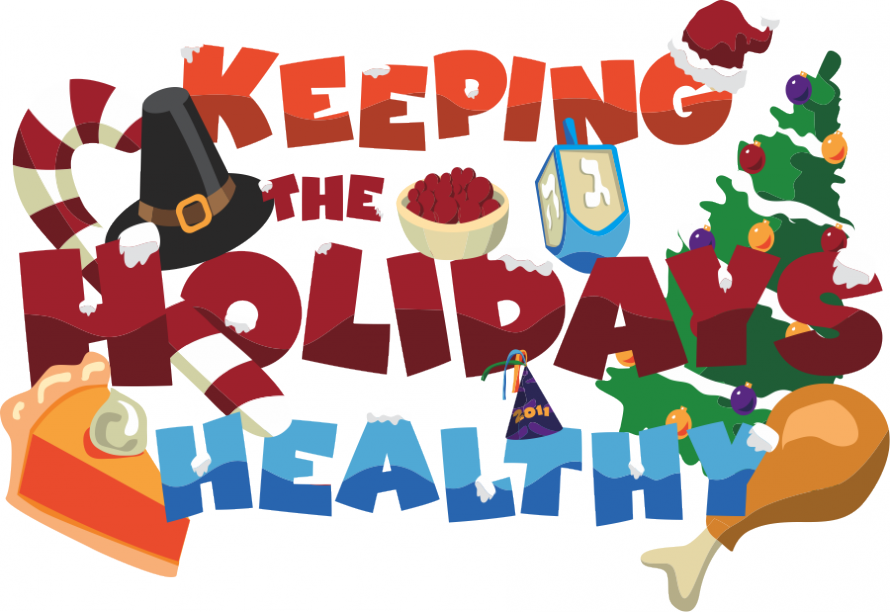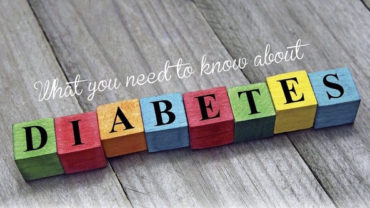DEC 2017: 4 Ways to Have a Healthier and Happier Holiday
 ‘Tis the season to overeat, overspend, and overcommit—sound familiar? Although it’s often easier said than done, there are ways to buck these trends. Focus on health and happiness—rather than the number of gifts exchanged. That can bring priceless payoffs to you and your family. Here are a few simple ideas to consider.
‘Tis the season to overeat, overspend, and overcommit—sound familiar? Although it’s often easier said than done, there are ways to buck these trends. Focus on health and happiness—rather than the number of gifts exchanged. That can bring priceless payoffs to you and your family. Here are a few simple ideas to consider.
- Eat well, but don’t deprive yourself. Do you have diabetes, high blood pressure, or another health condition that requires healthy eating choices? Or are you simply among the crowd that packs on extra pounds during the holidays? If so, plan ahead.
Have one or two strategies that make it possible to enjoy yourself without hurting your health. Here are a few examples: Bring a healthy dish to share at potlucks. Go easy on the liquid calories, especially alcohol. Treat yourself, but set limits—maybe limit sweet treats to once a week.
- Do some healthcare “housekeeping.” The flu or other illness is sure to put a big damper on anyone’s holiday. Take steps to make this less likely for you and those around you. Wash your hands often to help prevent the spread of germs. Get your annual vaccines, if you haven’t already.
The end of the year is also a good time to check if you need any exams and to sign up for insurance, unless you’ve done so already. Also, take advantage of family time to flesh out your family’s medical history. If you or someone you know is making multiple trips a month to pickup medication, talk to our pharmacist about consolidating those trips and even set up automatic refills so your medication is always ready.
- Focus on experiences, not things. Studies have shown that helping others can increase your own levels of happiness. This could be anything from volunteering at a local food bank to simply picking up prescriptions for a neighbor. There is no shortage of ways to get involved during the holidays—and all year long.
Here’s another way to focus on experiences: Create your own holiday traditions. Try some caroling with your family or friends. So what if your Uncle Charles is tone deaf? Just have some fun. And there’s another bonus: singing lowers stress.
Or maybe you’d enjoy cutting down your own tree, taking in a high school performance of the Nutcracker, or turning your holiday cards into gratitude cards. By adding personal notes that express your appreciation, you can boost your own happiness as well.
- Turn down the “doer dial.” Does it feel as though everything speeds up during the holidays? That can be really stressful. This is not a race. And no matter the messages you’re receiving, you don’t need to do it all. Take breaks when you need them. (Introverts, this especially applies to you!) Put another log on the fire, take a bubble bath, snuggle up with your sweetie, or sleep in—guilt free. Remember: if you take good care of yourself, you can be more present for the people you love. And after all, isn’t that what it’s all about?
Nothing herein constitutes medical advice, diagnosis or treatment, or is a substitute for professional advice. You should always seek the advice of your physician or other medical professional if you have questions or concerns about a medical condition.
NOV 2017: Diabetes: What You Need To Know
It’s a startling number: More than 100 million Americans have diabetes or high blood sugar levels, a condition called prediabetes. But a quarter of adults with diabetes don’t know they have it. And only about one in 10 know they have prediabetes.
Could you be among this crowd of people?
Heed the warning signs. Diabetes may be “silent” and not cause any signs or symptoms. However, these are common warning signs:

• Increased thirst or hunger
• Frequent peeing or urine infections
• Dry mouth
• Weight loss you can’t explain
• Fatigue
• Blurred vision
• Headaches
Know your risks. Discuss any warning signs you have, and ask your doctor about your risk of developing diabetes. For example, even a few extra pounds can increase your risk of type 2 diabetes, which goes up 30 percent for every 11 pounds gained. Big weight gains—44 pounds or more—make you 10 times more likely to develop the disease.
You may need a special blood test to confirm whether or not you have diabetes. And this could save your life. In the U.S., diabetes is the seventh leading cause of death, usually from heart problems. In addition to your heart, diabetes may lead to complications that affect everything from your brain and eyes to your kidneys and nerves. And did you know that the dementia risk linked to diabetes is nearly as high as that of a gene that’s a risk factor for Alzheimer’s?
Prevent or manage diabetes. It’s critical to do your best to prevent or manage diabetes. But most American adults with diabetes aren’t meeting recommended guidelines, which may include a combination of lifestyle changes and medication such as statins, aspirin, and drugs that lower blood sugar.
I’m not saying it’s always easy, but you can do it.
If you have prediabetes, you can cut your risk of diabetes in half with exercise and a healthy diet. Here are a few lifestyle changes that can go a long way toward preventing or controlling diabetes.
• Eat vegetables, fruits, whole grains, lean meats, and nonfat dairy. Limit foods high in fat and sugar.
• Shoot for 30 minutes of activity most days of the week—do something that makes you sweat and breathe a bit harder.
• Manage your stress, which can raise blood sugar levels. You know what relaxes you. It may be anything from yoga or meditation to gardening or petting a cat.
• Pitch the cigarettes. If you have diabetes, smoking is like throwing coals on a fire. It increases all the risks you may already have, such as heart and eye disease.
• Go easy on the alcohol. It can tweak your blood sugar level—making it go either too high or too low. If you’re a woman, have no more than a drink a day. If you’re a man, have no more than two.
• And finally, partner with your doctor and me. Whether you have questions about your risks, need tips about lifestyle changes, or want guidance about diabetes medications, you don’t have to go it alone. We’re here to help.
Nothing herein constitutes medical advice, diagnosis or treatment, or is a substitute for professional advice. You should always seek the advice of your physician or other medical professional if you have questions or concerns about a medical condition.
- « Previous Page
- 1
- …
- 53
- 54
- 55
- 56
- 57
- …
- 62
- Next Page »
